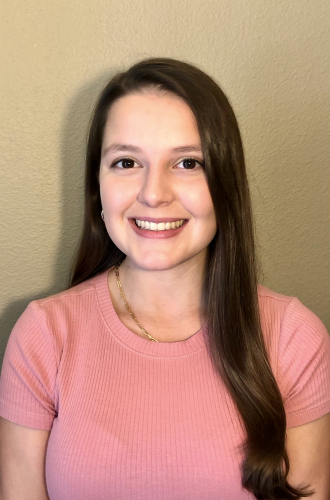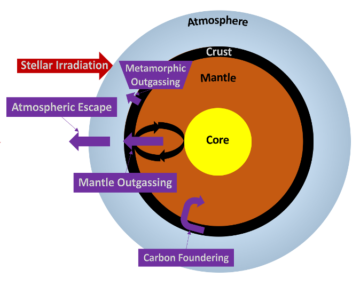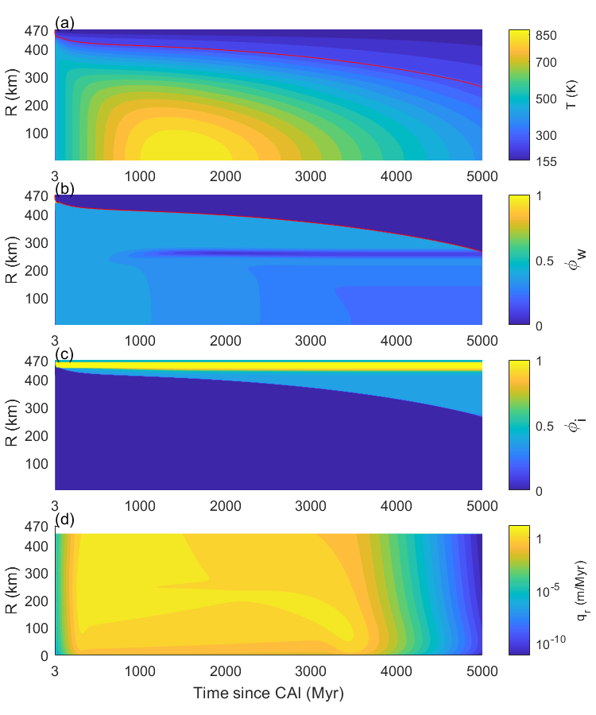CPSH Seminar Series: Katie Teixeira & Jialong Ren, UT Austin
March 20, 2023
Talk One: Katie Teixeira
Speaker: Katie Teixeira, Graduate Student, Department of Astronomy, UT Austin College of Natural Sciences
Host: Brandon Jones
Title: Modeling the Evolution of Terrestrial Planet Atmospheres Through Outgassing and Escape
Abstract: With the successful deployment of JWST, and its aim to potentially search for biosignatures on exoplanets, an important endeavor, at present, is to determine whether the rocky planets we observe are likely to have atmospheres at all. M dwarfs, the main host stars of JWST’s rocky planet targets, are thought to pose a major threat to planetary atmospheres due to their high magnetic activity over several billion-year timescales, and might completely strip planets down to bare rocks. Physical models are necessary to understand how a planet’s atmosphere evolves to become what we see today. Here, I will present coupled time-dependent simulations of atmospheric escape and planetary outgassing, processes that most influence atmospheric size and composition. I will present a case study of TRAPPIST-1c, a possible “exo-Venus” for which observations have recently been taken. I will review the results of simulations of TRAPPIST-1c, specifically the constraints that they place on the history of TRAPPIST-1c’s atmospheric and geological properties. Finally, I will discuss both simulation and observational developments that will aid in understanding rocky planets like TRAPPIST-1c.
Biography: Katie is a 2nd year graduate student in the Department of Astronomy at The University of Texas at Austin. She received a B.S. in Astrophysics and Biology from the University of Florida. There she worked with Sarah Ballard to study the demographics of M dwarf exoplanets and implications for biological evolution. She now works with Caroline Morley, developing and using simulations to model the evolution of CO2-dominated terrestrial planet atmospheres. Broadly, Katie is interested in what makes planets habitable and how to search for both habitable and inhabited planets.
Talk Two: Jialong Ren
Speaker: Jialong Ren, Graduate Student, Department of Geological Sciences, UT Austin Jackson School of Geosciences
Host: Brandon Jones
Title: Permeability Limited Compaction and (De)Serpentinization of Ceres
Abstract: The Dawn Mission revealed a surprise that Ceres is still hydrologically active, so its interior structure is important to explain the energy and mass transport at a later stage. In this work, we investigate the compaction history of dwarf planet Ceres with a two-phase flow scheme: viscous compaction of ductile rock coupled with Darcy’s flow in porous media. In such a scheme first used in the differentiation of volatile rich bodies, compaction is limited by pressure gradient required to expel the pore fluid and permeability as a function of porosity. Moreover, we also considered two phase changes: ice-melting and (de)serpentinization.
Biography: My background is in fluid/solid mechanics and numerical simulations. Currently I am interested in planetary science. There are two projects in process: 1) fragmentation and reassembly into rubble piles of planetesimals and 2) compaction and differentiation of small ocean worlds such as Ceres.




